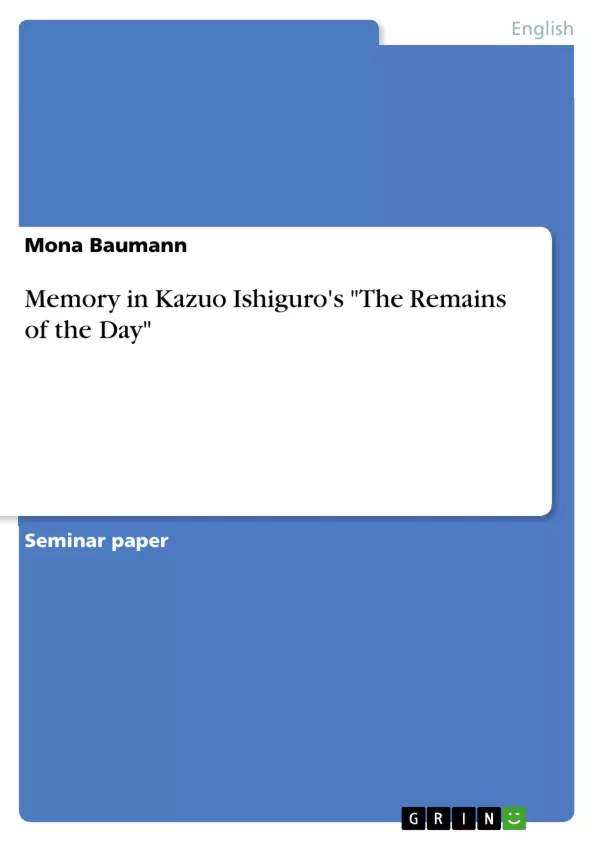This paper analyes the book „The Remains oft he Day“ from Kazuo Ishiguro.
It is told from the perspective of Stevens, an elderly head butler, who, during a six- day road trip to England’s West Country, reflects on his past at the country mansion Darlington Hall. He dedicated his life to serving Lord Darlington, a labelled traitor and Nazi sympathizer, and to the task of being a “great” butler. Shortly after the war, Mr Farraday, an American purchases the estate and minimizes the staff drastically. Under him, Darlington Hall is no longer the meeting point for “the wealthy and influential”
Table of Contents
- Introduction
- Stevens as an embodiment of national identity
- The values of greatness and dignity
- Stevens and Englishness
- Remembering historical events
- Conclusion
Objectives and Key Themes
This novel explores the life and memories of Stevens, an elderly head butler, as he reflects on his past service at Darlington Hall. The novel delves into themes of national identity, class, and memory, particularly focusing on the impact of historical events on Stevens's understanding of his own identity and the values he holds dear.
- The embodiment of English national identity through Stevens's actions and values.
- The influence of historical events on Stevens's personal and professional life.
- The dynamics of class and social hierarchy in England, as reflected in the relationship between Lord Darlington and Stevens.
- The role of memory in shaping one's understanding of the past and present.
- The tension between personal aspirations and societal expectations.
Chapter Summaries
- Introduction: This chapter introduces Stevens, the elderly head butler, and his journey through the English countryside as he reflects on his past at Darlington Hall. It sets the stage for the novel's themes of memory, national identity, and the values of Englishness.
- Stevens and Englishness: This chapter delves into Stevens's characteristics and how they embody traditional English values. It explores his dedication to his duties, his modesty, and his adherence to the expectations of an English gentleman. It also highlights the differences between British and American notions of gentlemanly conduct, as seen in Stevens's interactions with Mr. Farraday.
Keywords
The novel explores key themes such as English national identity, class structure, the impact of historical events, memory, and the values of a traditional English gentleman. These concepts are explored through the lens of Stevens's personal journey and his reflections on his past at Darlington Hall.
- Arbeit zitieren
- Mona Baumann (Autor:in), 2017, Memory in Kazuo Ishiguro's "The Remains of the Day", München, GRIN Verlag, https://www.grin.com/document/416823



